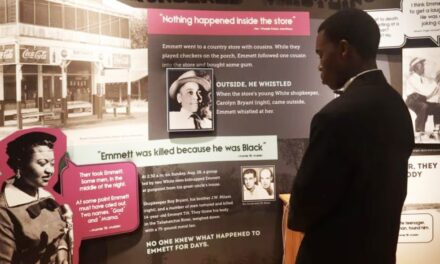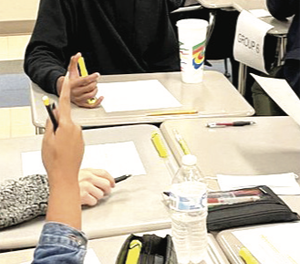By Megan Sayles,
AFRO Business Writer,
msayles@afro.com
The Interledger Foundation, a nonprofit focused on creating an open payments network to engender greater global financial inclusion, hosted a panel discussion at the Global Digital Development Forum in D.C. on April 24.
The discussion took place at the District Architecture Center and covered how open source technology can help corporations, nonprofit organizations and governments join forces to expand access to digital financial services for people across the globe.
Led by the Interledger Foundation’s CEO, Briana Marbury, the panel featured Carolina Costellini, head of trade policy at the Embassy of Brazil; Andres Arauz, CEO of the People’s Clearinghouse and Mischa Thompson, director of diversity, equity and inclusion for the U.S. Senate Foreign Relations Committee.
“Open source software means the ability to have technology be open. For instance, in a payment system, such as Cash App, it’s closed and proprietary. You don’t know what their source code is,” said Marbury.
“We want to open up payment systems and make them interoperable. Open source spurs innovation, and you’re able to have entrepreneurs—who may have been left out before— enter the ecosystem.”
Simply put, source code is the set of computer programming commands that enable a software to run. With open source software, users are able to view, modify and enhance the source code themselves to serve their personal needs.
For example, if a business owner wanted customers to donate to a charity as they pay for items, currently, they cannot do that on virtual sites and apps like Paypal. The makers of Paypal are the only people who can add a charity donation section at checkout on the Paypal website or app– even though business owners around the world use the website.
On an open source platform, business owners would be able to enter coding that creates the charity donation form at checkout, without asking the platform owners to change their system for every user.
In terms of business, open source software streamlines payments systems, allowing entrepreneurs to receive and make payments to customers and vendors more easily and enabling residents in rural areas to access banking services.
Open source technology is especially effective when it comes to cross-border payments because it extends software across national boundaries. It prevents entrepreneurs and individuals from incurring extra costs to send payments and from experiencing lengthy payment delivery times.
During the panel, Costellini highlighted Brazil’s open source payment system, Pix, which was created by the country’s central bank in 2020.
Pix enables people to transfer money online to Visa cards, Mastercard cards, bank accounts and digital wallets in over 100 countries, and it displays currency exchange rates.
“Pix is something that really helps small businesses, and today, it’s a reality for most of our small- and medium-sized companies,” said Costellini. “Half of our small- and medium-sized companies in Brazil use Pix today to receive money from their clients.”
Thompson called attention to the fact that the U.S. Federal Reserve is working to set up a similar system called FedNow, which is set to launch in July.
One of the biggest challenges to open source payments systems is cybersecurity. Individuals who use these technologies can be at risk of falling victim to phishing schemes or may be vulnerable to fraud attacks.
To reduce this threat, Arauz said it’s imperative that financial education is a major component of open source payment systems. His organization, People’s Clearinghouse, is using open source payment technology to connect community banks in rural Mexico to banking services that can extend to the U.S.
“The real vulnerabilities are not in the code or the software. The social engineering of phishing and fraud is where the real risk is,” said Arauz.
“That’s why you have to have financial education as a key element, so people know how to use their apps and how not to be a victim of phishing or giving their passwords away.”
Megan Sayles is a Report for America Corps member.
The post Global Digital Development Forum panel looks to open source technology as a means of increasing global financial inclusion appeared first on AFRO American Newspapers .











